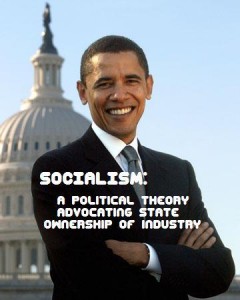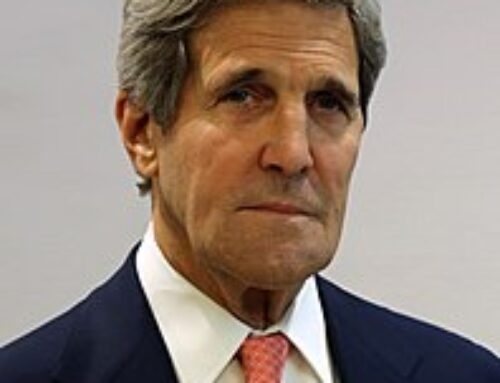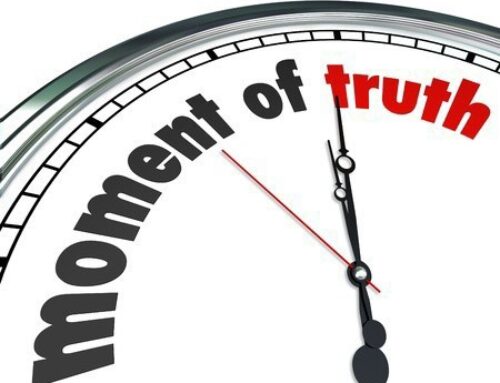 The question of whether Barack Obama is a socialist has never really been answered. Obama supporters and a fawning media have always managed to dismiss it as unfair or irrelevant. In fact, it is neither. An elected official’s political philosophy has a direct relationship to the initiatives he puts forward, the advisors he chooses, and his relationships with his peers at home and abroad. It is unfortunate that the question was not answered four years ago. That is all the more reason to address it now, before Election Day.
The question of whether Barack Obama is a socialist has never really been answered. Obama supporters and a fawning media have always managed to dismiss it as unfair or irrelevant. In fact, it is neither. An elected official’s political philosophy has a direct relationship to the initiatives he puts forward, the advisors he chooses, and his relationships with his peers at home and abroad. It is unfortunate that the question was not answered four years ago. That is all the more reason to address it now, before Election Day.
At the outset, we should note that there are many forms of socialism. The one associated with the former Soviet Union—that is, with the Union of Soviet Socialist Republics—is the best known, but it is not relevant to our discussion. Two other varieties, however, are relevant: “social[ist] democracy” and “democratic socialism.” Both share antipathy toward capitalism, seeing it as creating or at least fostering financial inequality. The former seeks to remedy the inequality by increasing government control through welfare programs, regulation of the private sector, and taxation. The latter seeks to replace capitalism altogether.
President Obama’s father did not hide the fact that he was a socialist. In a 1965 article, “Problems Facing Our Socialism,” he wrote: “Theoretically, there is nothing that can stop the government from taxing 100% of income so long as the people get benefits from the government commensurate with their income which is taxed. . . It is a fallacy to say there is a limit (to tax rates), and it is a fallacy to rely mainly on individual free enterprise to get the savings.”
As President Obama has acknowledged in Dreams from My Father, and others have demonstrated, he has been strongly influenced by his father and tends to share his father’s perspective. Further confirmation of this fact is found in many of his public statements about government. Here are some notable examples:
“And my suggestion, I guess, would be that the trick … is figuring out how do we structure government systems that pool resources and hence facilitate some redistribution because I actually believe in redistribution, at least at a certain level, to make sure that everybody’s got a shot.” Loyola University, October 19, 1998
“Maybe I am showing my bias here as a legislator as well as a law professor, but you know I am not optimistic about bringing about major redistributive change through the courts . . . One of the tragedies of the civil rights movement was that the civil rights movement became so court focused, I think, there was a tendency to lose track of the political and organizing activities on the ground that are able to bring about the coalitions of power through which you bring about redistributive change.” 2001 Chicago public radio interview
“I think when you spread the wealth around it’s good for everybody.” Comment to “Joe the Plumber,” 2008
“I mean, I do think at a certain point you’ve made enough money.” Quincy IL speech, April 28, 2010
“You didn’t get there on your own . . . If you were successful, somebody along the line gave you some help . . . Somebody invested in roads and bridges. If you’ve got a business . . . you didn’t build that. Somebody else made that happen.” Roanoke VA speech, July 13, 2012
Add to these President Obama’s repeated declaration that the rich should “pay their fair share” and his promises to “end tax cuts for the rich” and “level the playing field,” and there can be no question that he talks socialism. But that is not all. He has backed up his talk with action, adding 106 major governmental regulations, increasing federal welfare expenditures by 19%, taking over General Motors, and expending billions of taxpayer dollars to favored companies and industries (a notably sad case is Solyndra).
Is President Obama a socialist? Of course he is. Not a Marxist socialist, to be sure, and probably not even the kind of socialist that seeks to overthrow capitalism entirely. But rather, the kind that seeks to restrain capitalism through regulation, taxation, and the transfer of power from the private sector to government.
Does it matter that President Obama is a socialist? It certainly does in the view of his supporters. Why else would they go to such great lengths in an effort to deny that he is and to attack those who say otherwise? It must matter to the President, too. Otherwise, he would publicly proclaim that he is a socialist, as his father was, and say that he is proud of the fact. That would be the honest way, so why doesn’t he take it?
The only plausible reason is that the President realizes, at least subconsciously, that socialism has failed wherever it has been tried, including the former Soviet Union, Cuba, Spain, and Greece. He therefore knows that if he admitted to being a socialist, millions of Americans would demand to know how he can possibly embrace—and, worse, impose on the entire country—a system of government that is fundamentally flawed and therefore doomed to fail.
How could he answer those millions of Americans? Certainly not by saying, “Look how well it has worked for us in the last three-and-a-half years.” No, the only conceivable (and honest) answer would be, “I continue to embrace socialism and follow its principles as President because I choose to believe my father’s vision rather than the hard facts of history.” He will not say that, of course, because doing so would guarantee his defeat. It is up to the voters to discern it.
Copyright © 2012 by Vincent Ryan Ruggiero. All rights reserved


